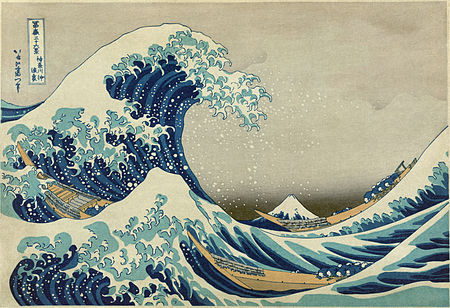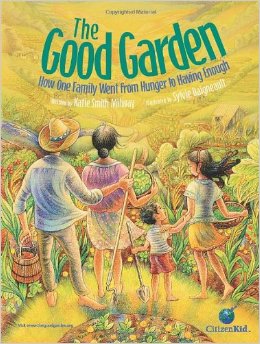by Lisa Voelker | May 4, 2022 | Uncategorized
Climate Change Literacy and Community Preparedness: Resilience From the Youth Up Monday, May 1612:30-2:30 P.M. VIRTUAL This event will start with a short story about a four-year effort to address climate change literacy and resilience efforts in science classes for...
by Lisa Voelker | Jan 6, 2021 | Community Stewardship, Curriculum, Ecosystems / Biodiversity, Environmental Inventory, High School, Uncategorized, Water Quality / Studies
PBE Topics of Inquiry Water and land use, stream ecology, macroinvertebrates, conducted chemical, biological and physical stream monitoring techniques, stream mapping and assessment, nature drawing and journaling. Essential Question What role could the Rouge Park play...
by SEMIS Coalition | Jan 6, 2021 | Inquiry-Based Learning, Place-Based Education, STEM, Uncategorized, Water quality testing
Watershed Education PBE Topics of Inquiry Water and land use, stream ecology, macroinvertebrates, conducted chemical, biological and physical stream monitoring techniques, stream mapping and assessment, nature drawing and journaling. Essential Question What is our...
by Lisa Voelker | Mar 17, 2019 | Uncategorized
Community Forum Info Meeting (1) with presenter information.
by Lisa Voelker | Mar 12, 2018 | Uncategorized
Information for those planning on presenting at this year’s community forum: Schedule April 30, 2018 8:30 a.m. Registration Table opens 9-9:30 a.m. Light Breakfast and refreshments available 9:30-9:45 a.m. Opening remarks 10:00 a.m.- 12:30 p.m. Presentation...
by Lisa Voelker | Feb 6, 2018 | Uncategorized
Community mapping can be a helpful process to begin a PBE inquiry with students. Community mapping can be done is diverse ways, meeting many learning goals depending on design. Try mapping your community asking certain questions, framing an issue, or with completely...
by Lisa Voelker | Jul 2, 2017 | Uncategorized
Summer Institute Each year, we design our annual Summer Institute around an ecological theme, creating a common language for engaging in deep cultural-ecological analysis, project planning, and community inquiry and action. Using the best practices of professional...
by Lisa Voelker | Jul 2, 2017 | Uncategorized
Scope and sequence of professional learning Community partners and classroom-based teachers learn in a collaborative setting throughout the annual 9-day SEMIS Coalition professional development (PD) series. The PD series is cumulative over a one-year period and...
by Lisa Voelker | Jul 2, 2017 | Uncategorized
Earth Force Community Action and Problem Solving Process The Six Step Model: https://earthforce.org/community-action-and-problem-solving-process/ Youtube Channel for the Earth Force Six Step Process: CommunityActionProblemSolvingProcess
by Lisa Voelker | Jul 2, 2017 | Uncategorized
NOAA Assets Document, compiled by Laura Florence: noaa-great-lakes-education-resources-and-links Bay Watersheds Education & Training Program, Meaninful Watershed Education Experiences (MWEE):...
by Lisa Voelker | Jul 2, 2017 | Uncategorized
Designing Sustained PBE (Place-based Education), created by SEMIS Coalition Program Director, Rebecca Nielsen: designing-sustained-pbe-2016 Backward Design: Backwards Mapping – SEMIS planning updated Questions that Deepen Discussion: Questions that Deepen...
by Lisa Voelker | Jul 2, 2017 | Uncategorized
What’s in a cup of coffee? At Experiencia Academy, students followed the story of the coffee bean from a roaster in Ohio all the way to the fields where it grows in Mexico, Central and South America. Reach Trade Coffee Company’s Water for the America’s campaign...
by Lisa Voelker | Jul 2, 2017 | Uncategorized
How do you turn a dumping ground into a teachable space? Hope of Detroit Academy (HODA) students engage in many community-based projects as self-defined stewards of their community. While working on other projects, illegal dumping came up in student conversations as a...
by SEMIS Coalition | Jul 2, 2017 | Uncategorized
What does a Great Lakes prairie have to do with classroom learning? NeinasElementary, in collaboration with The Greening of Detroit, DPS and Friends of The Rouge, engaged students outside the classroom in their local ecology. Their...
by Lisa Voelker | Jul 2, 2017 | Uncategorized
The Green Team gains STEAM at DIT-CODY With the support of the community and their teachers, students at DIT-CODY are taking the lead in developing STEAM-based solutions to pressing Detroit Public School sustainability needs, like energy, insulation, recycling, and...
by Lisa Voelker | Jul 2, 2017 | Uncategorized
It’s hard to find a better example of project-based learning than how students at Jack Harvey Elementary spent their school year — raising and releasing salmon. Through the Michigan DNR’s Salmon in the Classroom program, students raised and cared for salmon in their...
by Lisa Voelker | Jul 2, 2017 | Uncategorized
Articles, Book Chapters, White Papers, and Book References Developing Teachers’ Capacity for Ecojustice Education and Community-Based Learning; by Ethan Lowenstein, Rebecca Martusewicz, & Lisa Voelker; Teacher Education Quarterly, Fall 2010 (PDF) Conference...
by Lisa Voelker | Sep 21, 2016 | Uncategorized
Written by Greg Smith. One of the arguments I’ve used to justify place- and community-based educational approaches has been tied to the way I’ve seen it increase students’ intrinsic motivation to learn and participate. I’ve suggested that this enhanced motivation is...
by Lisa Voelker | Aug 30, 2016 | Place-Based Education, Professional Development Materials, Uncategorized
Written by Bill Boyle and Ethan Lowenstein. Chet Bowers asks a question that we should all be considering, especially those of us who serve as educators: “How do we live more interdependent lives based on practices that are less dependent on a monetized world, that...
by Lisa Voelker | Aug 28, 2016 | Uncategorized
Some Background There are many ways to structure place-based learning experiences with students. In place-based education, you can give students a range of freedom to make choices. Sometimes it is difficult to frame a place-based inquiry in a way that is clear to...
by Lisa Voelker | Jul 19, 2016 | Uncategorized
By Bill Boyle We have put together some resources that are based on the 2016 SEMIS Summer Institute. These are resources intended to build on, support and extend the experiences and learning themes that were developed over the course of these four days. (Check out...
by Lisa Voelker | Jul 2, 2016 | Curriculum Integration, High School, Intergenerational Dialogue, Student Voice, Teacher Toolkit, Uncategorized
Students from Detroit Institute of Technology at CODY High School co-authored an article for the 2016 summer issue of Green Teacher Magazine, titled Fostering Youth Leadership in Urban Place-based Education. This inter-generational collaboration challenged us to...
by Lisa Voelker | Jul 2, 2016 | Uncategorized
By Bill Boyle Day 3 was another day of outdoors, experiential immersion. We started at Helms Haven Park for water testing with the excellent instruction from Friends of the Rouge. We did chemical testing and benthic marcro-invertebrate searches. Both of these are...
by Lisa Voelker | Oct 28, 2015 | Uncategorized
Greetings! This year the SEMIS Coalition received the John W. Porter Endowed Chair in Urban Education, one of the most prestigious awards in the Eastern Michigan University College of Education. One of the roles of the Porter Chair is to create and facilitate...

by Lisa Voelker | Sep 21, 2015 | Uncategorized
ERIC ZENER: http://abduzeedo.com/hypnotic-paintings-water-eric-zener Claude Monet does many different paintings of water flowers https://en.wikipedia.org/wiki/Water_Lilies Fredrick Remington, Fight for the Waterhole https://en.wikipedia.org/wiki/Frederic_Remington...
by SEMIS Coalition | Jun 15, 2015 | Ecosystems / Biodiversity, High School, Uncategorized
Following the yearlong investigation into permaculture as a teaching method, one interesting aspect of this design method is tapping into a complex communication network among plant and animal communities that supports more harmonious agriculture systems, which are...
by SEMIS Coalition | Jun 1, 2015 | Gardens, Uncategorized, Water Quality / Studies
“The atmosphere, the earth, the water and the water cycle – those things are good gifts. The ecosystems, the ecosphere, those are good gifts. We have to regard them as gifts because we couldn’t make them. We have to regard them as good gifts because we...
by SEMIS Coalition | May 31, 2015 | Uncategorized
Background: The “ecojustice with/in disability studies” affinity group grew out of shared interests at the SEMIS summer institute. The group looks at the intersection and effect of attitudes towards human animals, nonhuman animals, and plants. The premise is that...

by SEMIS Coalition | May 18, 2015 | Food Systems, Gardens, Uncategorized, Upper Elementary
When the exhausted soil of their family plot doesn’t yield enough and her father leaves to find work, María Luz plants the winter vegetables using new farming techniques she learns from her teacher, Don Pedro. Marigolds repel insect pests. Terracing and using...
by SEMIS Coalition | May 4, 2015 | Uncategorized
“Exploration of the natural world begins in early childhood, flourishes in middle childhood, and continues in adolescence as a pleasure and a source of strength for social action.” – David Sobel How do you adapt your place-based education to nourish the...
by SEMIS Coalition | Apr 20, 2015 | EcoJustice, Leadership Development, Uncategorized
In honor of Earth Day, brush up on the EcoJustice basics through the following video: In this video, Rebecca Martusewicz defines how the the Ecojustice Education masters program emerged from “a crisis in the way we think about the way we are in relationship to each...
by SEMIS Coalition | Apr 6, 2015 | Green Energy, High School, Middle Grades, Uncategorized
How do we educate on the lesson of climate change that is relevant for youth? How do we understand the root causes of these changes, and how do we plan for a resilient future? These are difficult questions that are often hard to teach in a way that hits home...
by SEMIS Coalition | Mar 23, 2015 | Uncategorized
“If a child is to keep alive his inborn sense of wonder, he needs the companionship of at least one adult who can share it, rediscovering with him the joy, excitement, and mystery of the world we live in.” – Rachel Carson, environmental activist and author How...
by SEMIS Coalition | Mar 9, 2015 | Environmental Impact, Inquiry-Based Learning, STEM, Uncategorized, Water Quality / Studies
How do you talk about the larger impacts of the Great Lakes watershed on the health and wellbeing of our region? How do you tell the big picture of this bioregion and your place within it? This feature length video goes into detail about the long-term impacts of...
by SEMIS Coalition | Feb 27, 2015 | Uncategorized
What resources or ideas do you have for our new Tools for Teachers page? Please use the comments section of the blog to post your best ideas and links around the following topics: High Quality Environmental Content Civic Engagement Processes Content Standards...


